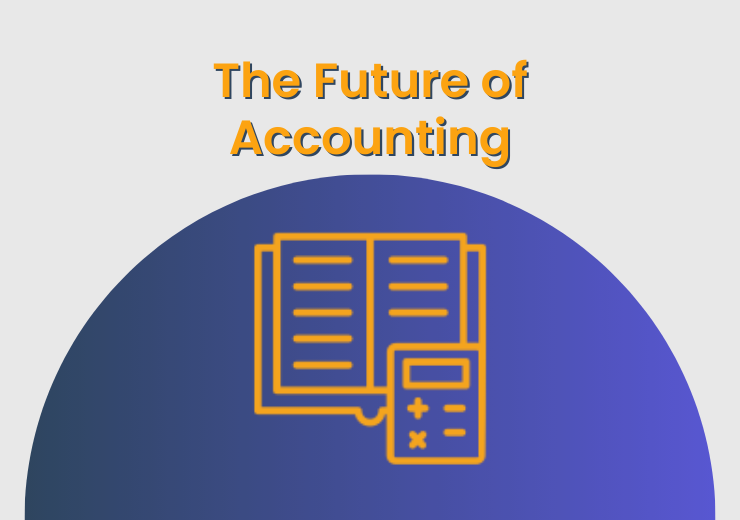1. Introduction
In the ever-evolving world of finance and business, the accounting industry is no exception to change. The future of accounting is being shaped by technological advancements, changing client needs, and a heightened focus on sustainability and innovation. In this article, we’ll explore the key trends that are reshaping the accounting landscape.
Accountancy Net, your trusted partner in the world of finance, is here to guide you through the exciting journey that lies ahead. The future of accounting promises to be an era of innovation, digitization, and evolving client expectations.
In an age where data is king, accountants are no longer just record-keepers but are becoming data-driven strategists. The convergence of technology, regulatory changes, and a global focus on sustainability is shaping the future of the accounting industry in unprecedented ways. At Accountancy Net, we are committed to helping you stay ahead in this ever-changing world.
2. Automation and Artificial Intelligence (AI) in Accounting
The adoption of automation and AI in accounting is revolutionizing the profession. Routine tasks, such as data entry and reconciliation, are being automated, allowing accountants to focus on more value-added activities like financial analysis and strategic planning.
3. Cloud-Based Accounting Solutions
Cloud-based accounting software is becoming the norm. These solutions offer flexibility, real-time access to financial data, and enhanced collaboration among accountants and clients. Cloud accounting streamlines operations and reduces the risk of data loss.
4. Blockchain Technology in Accounting
Blockchain is making waves in accounting due to its ability to ensure transparency and security in financial transactions. It minimizes fraud, reduces auditing costs, and enhances the integrity of financial records.
5. Data Analytics and Predictive Accounting
Accountants are increasingly using data analytics to uncover insights and trends. Predictive accounting leverages historical data to make future financial predictions, assisting businesses in proactive decision-making.
6. Remote Work and Collaborative Accounting
The pandemic has accelerated the adoption of remote work in accounting. Collaboration tools and virtual meetings have made it easier for accountants to work together, irrespective of their physical locations.
7. Sustainability and Green Accounting
Sustainability reporting and green accounting are gaining momentum. Companies are under pressure to disclose their environmental impacts. Accountants play a crucial role in measuring and reporting on sustainability metrics.
8. Cybersecurity in Accounting
The increasing digitalization of financial data calls for enhanced cybersecurity measures. Protecting sensitive financial information is paramount to safeguarding the integrity of financial statements.
9. Regulatory Changes and Compliance
Accounting standards are continually evolving. Accountants must stay updated on the latest regulations and ensure their clients remain compliant. Changes in tax laws and financial reporting requirements also impact the industry.
10. Accounting Education and Skillsets
Accountants need to adapt to the changing landscape by developing new skillsets. Knowledge of technology, data analysis, and an understanding of ethical and sustainable practices are becoming increasingly important.
11. Client-Centric Services
Accountants are shifting from being number crunchers to trusted advisors. They provide personalized financial guidance and collaborate closely with clients to achieve their financial goals.
12. Virtual Reality and Augmented Reality in Accounting
Emerging technologies like virtual reality and augmented reality are being explored for training and data visualization in accounting. These immersive technologies can enhance learning and data analysis.
13. The Role of Accountants in Advisory Services
Accountants are evolving into strategic advisors, guiding businesses on growth, risk management, and financial planning. This shift requires a deep understanding of a company’s operations and goals.
14. Integration of ESG Factors in Accounting
Environmental, Social, and Governance (ESG) factors are increasingly integrated into financial reporting. Accountants play a vital role in quantifying and disclosing a company’s ESG performance.
15. Conclusion
The future of accounting is filled with exciting possibilities. Technological advancements, changing client needs, and a heightened focus on sustainability are driving the industry forward. To thrive in this evolving landscape, accountants must embrace change, expand their skill sets, and continue to deliver value to their clients. Accountancy Net will be your compass as we navigate these uncharted waters together. With our expertise, cutting-edge technology, and commitment to excellence, we are well-prepared to embrace the evolving trends and challenges of the accounting industry. Whether it’s embracing automation, mastering blockchain, or delving into sustainability reporting, Accountancy Net is your partner in realizing a brighter, more innovative future for accounting. Join us on this exciting journey and seize the possibilities that lie ahead in the world of accounting with Accountancy Net.
16. FAQs
1. What is predictive accounting?
Predictive accounting uses historical data to make future financial predictions, helping businesses make informed decisions.
2. How are accountants adapting to the rise of automation?
Accountants are focusing on value-added activities like financial analysis and strategic planning as automation handles routine tasks.
3. What is the role of blockchain in accounting?
Blockchain ensures transparency and security in financial transactions, reducing fraud and enhancing the integrity of financial records.
4. Why is sustainability important in accounting?
Sustainability reporting and green accounting help companies measure and report on their environmental impacts, meeting increasing stakeholder demands.
5. How are accountants becoming more client-centric?
Accountants are shifting from being number crunchers to trusted advisors, providing personalized financial guidance and collaborating closely with clients.

